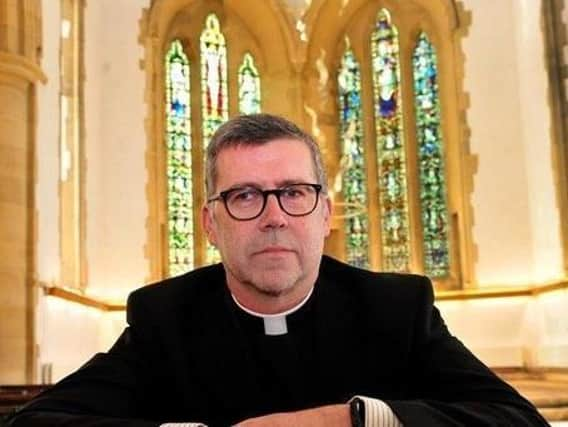Column: Life will be different to how it was before


What have you given up? What are you looking forward to having again?
These aren’t pandemic questions. They’re questions many Christians face during the season of Lent.
Advertisement
Hide AdAdvertisement
Hide AdThis is a time when we remember Jesus being in the wilderness for forty days and forty nights, seeking to resist temptation. It’s a time for discipline, self-restraint and thinking of others.
This year, of course, it might feel more like we’ve been in the season of Lent for much longer.
For many there have been privations since the pandemic first really started to take hold in this country almost a year ago.
But Lent is about what we choose, freely, to give up: it’s not about things imposed on us by circumstances or events.
Advertisement
Hide AdAdvertisement
Hide AdNor is what we give up for Lent supposed to be for our own benefit.
Sorry, Lent isn’t about giving up chocolate biscuits or gin because we want to drop a few pounds before the spring or summer.
Lent asks us to re-assess our relationships: to each other, to our communities, to God.
It’s a time for us to ask ourselves what we need to work on, what we need to do better, what we need to let go.
Advertisement
Hide AdAdvertisement
Hide AdEven as we see hope in the future, signs of emerging from lockdown, a ‘roadmap’ of how our lives might be shaped in the coming weeks and months, there is a real question to be answered:
Do we just want everything to go back to ‘how it was’? Because if we do, we’ll find we’ll be disappointed.
Why? Because life always, for good or ill, moves inexorably forward, whether we like it or not. None of us are the same today as we were yesterday – let alone a year ago.
One of the great thinkers of the Church, St John Henry Newman, a Church of England priest who converted to Roman Catholicism, put it this way:
Advertisement
Hide AdAdvertisement
Hide Ad“To live is to change. But to be perfect is to have changed often.”
As human beings, we have tremendous capacity to change, to develop, to grow. Yes, we sometimes hanker after that which we fondly and distantly remember. But the danger with that is that we end up chasing ghosts, echoes of fleeting memories, which inevitably disappoint in their rediscovery.
As we move through Lent to Easter, as we move from lockdown to emergence, life will be different to how it was before.
That is a certainty. But what will we have learned about ourselves, each other and the world in which we live and move and have our being?
Advertisement
Hide AdAdvertisement
Hide AdOne thing I hope we will have learned, one change we can all make, is to be thankful.
To remember what we have, rather than constantly longing for what we don’t.
To give thanks for those who have served us so magnificently in the last year: not just our outstanding NHS staff but also teachers, supermarket workers, those who collect our refuse, the emergency services and all frontline workers.
For if we think we can give these tremendous people up, turn our backs on them in the future, or take them for granted as so often we did, then what we shall discover we have given up is far more than we can possibly hope to gain.